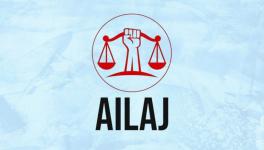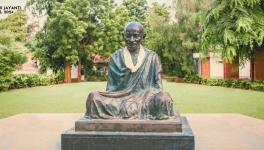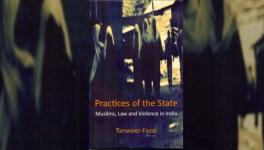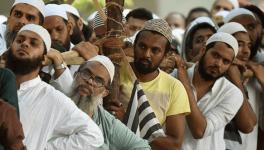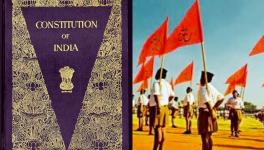Us and Them: The Misuse of Gujarat’s Controversial Disturbed Areas Act
Image Courtesy: The Wire
In April 2018, Nagrik Sewa Samiti, an Ahmedabad-based outfit which is part of the Hindu Jagran Manch – affiliated to the Vishwa Hindu Parishad (VHP) – filed a complaint seeking the reclamation of a housing society called Varsha Flats. It said the residential society in Ahmedabad was allegedly ‘taken over by Muslims’.
“Just like love jihad, Muslims practice something called land jihad,” said Jigar Upadhyay, one of the founders of the Samiti and a member of the Hindu Jagran Manch.
“It is a well-planned conspiracy of Muslims to take over the area where non-Muslims reside. First, they buy one flat at a higher rate than the market value and then keep buying properties in the area or the building. Before you know, there is only one residential property left in area owned by a non-Muslim. That property is devalued and bought by Muslims for peanuts as the area isn’t safe for a non-Muslim family anymore,” explained Upadhyay.
“The whole point of Disturbed Areas Act is to ensure the safety of non-Muslims. Muslims should stay in restricted areas of the city and let non-Muslims live peacefully and safely everywhere,” he added.
Following the complaint by the Nagrik Sewa Samiti, Chief Minister Vijay Rupani ordered a review of Disturbed Areas Act with the intention of plugging its loopholes. The meeting was attended by Pradipsinh Jadeja, Minister of State for Home and officials of the home and revenue departments.
Varsha Flats, a residential complex in the Paldi area of Ahmedabad, was originally a cooperative society built in 1969 and had 24 flats. After 35 years, the contract for redeveloping the dilapidated flats were given to two Muslim builders. Along with the original 24 flats, an additional 38 flats were part of the redevelopment plan.
“There was no clarity about the inclusion of Varsha Flats in the Disturbed Areas Act, so we were initially given permission and documents were registered by the district sub-registrar. Later, the authorities realised the flat does fall under the Act and then permissions were granted under the Disturbed Areas Act. Thereafter, two men named Apoorv Shashtri and Jigar Upadhyay identified themselves as social workers and raised an objection. These two men are in no way related to the property or stay near it. Yet they were heard by every authority including the Chief Minister. They kept accusing us of land jihad and distributed pamphlets around Paldi asking people to wake up and save Paldi from becoming Juhapura (a Muslim ghetto in the city),” said Ruknuddin Sheikh, one of the builders.
Notably, most Muslim families who used to live in Paldi have migrated to Muslim-dominated areas of the city gradually after riots in 1985, 1992 and 2002. Most of those houses were sold to Hindu families.
Munir Sheikh was one of the many Muslims who bought a flat in Paldi, but had to sell eventually. Sheikh was an employee of the Life Insurance Corporation (LIC) when he bought a flat in Paldi in 1995 – a house in which he and his family could never live in.
“I took a loan from LIC and bought this flat in Paldi, an area dominated by the Jain community. There were six families in the building back then, out of which two were Muslims, including ours. Four families who were Hindus were not happy to have Muslim neighbours. The late Haren Pandya, an influential BJP leader, used to be the corporator of the area then. At the behest of Pandya, a case was filed against me invoking the Disturbed Areas Act. They tried to prove that I was dangerous and that if I bought the flat more Muslims will come and eventually take over the area. The lower court ruled that I should vacate it and move elsewhere, but I appealed in the Gujarat High Court,” said Sheikh, now a retired man.
Sheikh fought the legal battle for four years till the Gujarat HC ruled that the flat doesn’t fall under the Disturbed Areas Act and asked the police to provide the family protection.
“I sold the flat as soon as I won the case. We were too scared to shift there. For the four years that I fought the case, I could not live there and was faced with constant threats and pressure. In fact, my house was attacked and arson was attempted. Our neighbours, both Hindus and Jains, boycotted us. All this while police never registered my complaint,” recalled Sheikh.
In a similar case in October this year, the HC granted permission to a Muslim buyer of Samarpan Society, a Hindu-dominated residential complex in Vadodara, to restart the construction of his house. He, like many Muslim home owners of the society, was facing flak from Hindu residents.
The Vadodara civic body and electricity department put a halt on construction and had cut off electricity after complaints were filed against the buyer, accusing him of violating rules under the Disturbed Areas Act.
What is the Disturbed Areas Act?
The Gujarat Prohibition of Transfer of Immovable Property and Provisions of Tenants from Eviction from Premises in Disturbed Areas Act, commonly known as the Disturbed Areas Act, was enacted in the year 1986. It was meant to be temporary in order to prevent the distress sale of properties following the riots in 1985-86. However, it was replaced with a new act in 1991, which empowered the Gujarat government to declare a riot-prone or communally sensitive area as ‘disturbed’.
Under the Act, a district collector can notify a particular area of a city as a ‘disturbed area’. Once the area is declared as such, the transfer of immovable property in the disturbed areas can take place only after it gets the collector’s nod on an application by the seller and the buyer. In the application, the seller has to attach an affidavit declaring that he/she is selling the property of his/her own accord at a fair market price. A person can be imprisoned and fined for violating the Act.
The Amendment to the Act
In July 2019, the Gujarat government moved to amend the Act, claiming that a large number of complaints had been received by ruling party MLAs about people who had flouted the provisions of the Act by using legal loopholes. The amendment received Presidential assent on October 13, 2020.
The amended Act enhanced the scope of the term ‘transfer’ to include transfer of right, title or interest in or over properties in disturbed areas by means of sale, gift, exchange and lease. Under the amended Act, no property in disturbed areas can be registered without prior sanction from the collector.
The amended Act also gives the collector more power to asses if there are chances of ‘polarisation’ or ‘improper clustering’ of people of a particular community in an area, thus disturbing its demographic equilibrium.
Provision for the creation of an SIT or a committee to probe these aspects has been included in the amended Act. The Act now enables the state government to form an advisory board who will advise the government on adding new areas to the list.
The BJP government claimed that the aim of the Act is to check polarisation in the state. Currently, 109 areas in Ahmedabad district are declared ‘disturbed’ under the Disturbed Areas Act, with new areas added in June this year. In August this year, areas under four police stations in Vadodara were said to be ‘disturbed’ under the Act after a representation on the matter by local BJP MLA Manishaben Vakil. In May this year, areas under two police stations in Surat were added to the Act due to a long-standing demand by local BJP MLAs of the areas.
Get the latest reports & analysis with people's perspective on Protests, movements & deep analytical videos, discussions of the current affairs in your Telegram app. Subscribe to NewsClick's Telegram channel & get Real-Time updates on stories, as they get published on our website.










